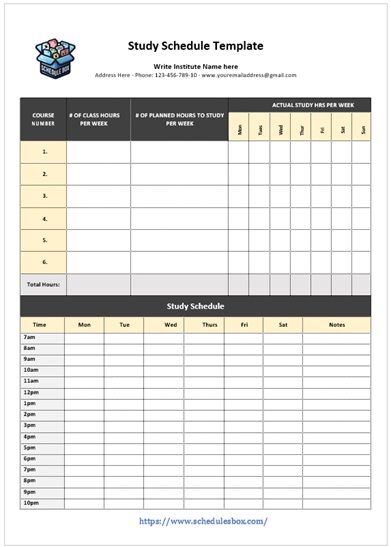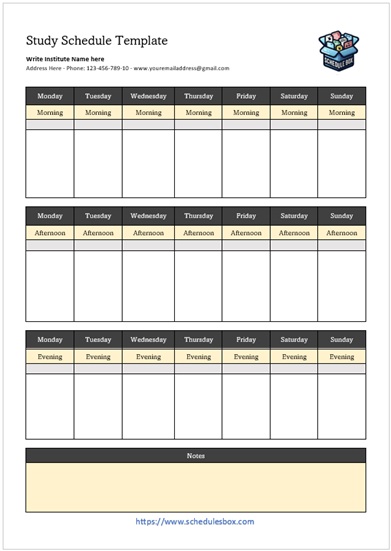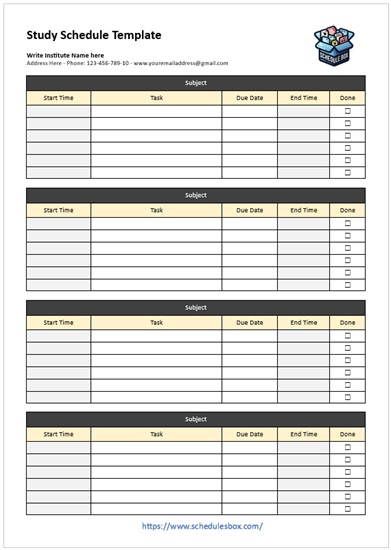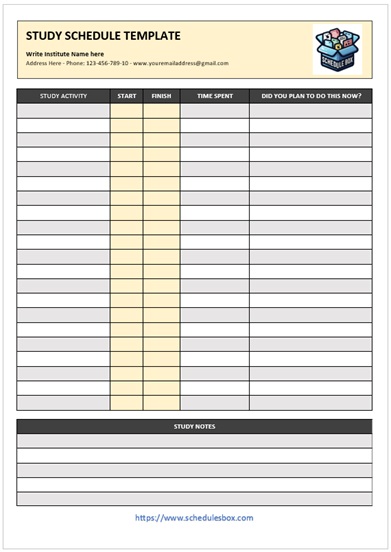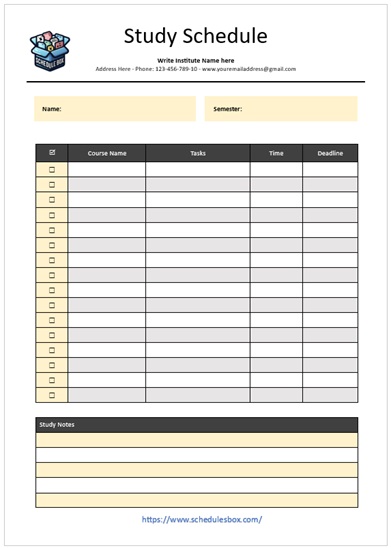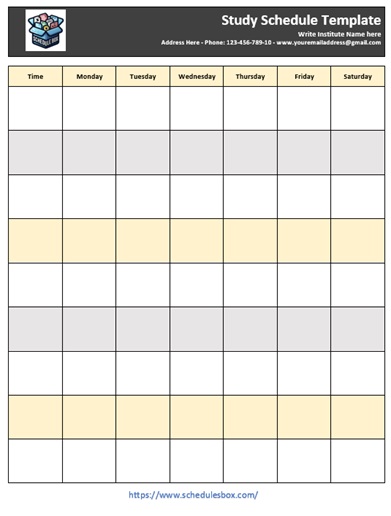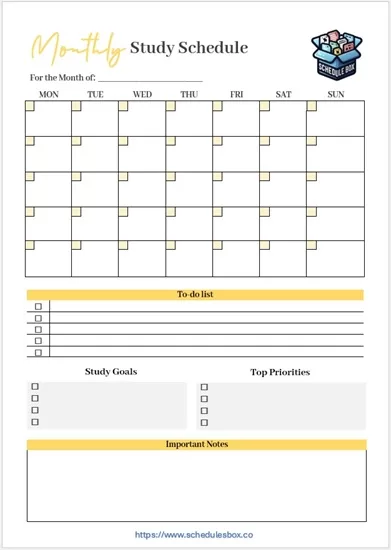Here are the download links for Free Study Schedule Templates to help you start planning and organizing your academic matters in an effective way.
A planned timetable called a Study Schedule states time periods when one should study or carry out educational activities. It’s an instrument widely used by pupils to help them in time management by ensuring that they have adequate time devoted to every subject or work as well. Here are some of the key features and benefits of a study schedule:
- Organization: Every student who wants to prevent cramming at the last moment and remember more information needs help in organizing their study sessions.
- Time Management: By allocating distinct time blocks for resting, studying, as well as other commitments, a person is able to manage his or her time effectively. This ensures that the schedule is kept balanced.
- Prioritization: It enables students to specify their subjects or topics according to their complexity, importance level or urgency.
- Goal Setting: It helps in setting and meeting short-term goals (for example – preparing for an upcoming test) and long-term goals (e.g., finishing an entire course).
- Stress Reduction: Planning what needs to be studied and when helps decrease anxiety and stress from deadlines or exams.
- Performance Tracking: Let students lead the way they are performing over time as they may need to shift their focus on areas that are difficult for them.
Study schedules are usually daily, weekly, or even monthly based on students’ needs and can be altered whenever needed to suit volatile study requirements or unexpected events.
Free Study Schedule Templates
Here is a collection of my Free Study Schedule Templates that I have created using MS Word to help my website visitors plan their study time easily.
Types of Study Schedules
Numerous study plans have been developed for different studying styles, commitments, and objectives. Every such schedule can be modified to meet one’s specific requirements. Here are some common types of study schedules:
- Fixed Time Schedule: This timetable is based on definite periods for studying each day. For those who adhere to a uniform schedule and appreciate orderliness, it is effective, e.g., a student can learn between four and six in the evening daily.
- Flexible Schedule: The mentioned type would be appropriate for individuals who have sporadic activities or are involved in part-time paid occupations because it offers more variability in terms of their availability each day they can choose other times.
- Block Schedule: It involves focusing on a major topic or activity during extended periods. This is particularly useful in researching and writing research papers which are very involving.
- Rotating Schedule: On different days new topics are touched on to avoid monotony and in order to be fresh in the course of study, hence contributing to enthusiasm and interest among the learners.
- Task-Based Schedule: A schedule by task utilizes time as a resource, unlike regular schedules which allocate time per subject (e.g., finishing a chapter, or writing an essay). If your tasks overload themselves like this then it’s perfect for you; you tick them one by one when complete indicating progressiveness till they are all done and provides that sense of satisfaction when itemized.
- Pomodoro Technique: Study for about 25 minutes, take a 5-minute break, then repeat. Take a longer break after a few cycles. This method helps maintain focus and avoids exhaustion.
- Weekly/Daily Planner: People might decide to use a calendar or a planner to show a timetable of study sessions as well as things they want to do over a day or a week. It might involve making a detailed plan for each hour or coming up with broader targets on a daily basis.
- Exam Countdown Schedule: Designed for preparation for exams by commencing several weeks or months ago, intensifying continuously till the examination. It emphasizes going through important review materials for last-minute revisions and engaging in practice questions during the last few hours before the paper.
The type of study pattern that an individual chooses depends on his/her personal preferences, work habits, and daily routines. To this end, both productivity and efficiency can be boosted by blending some components from several timetables to create a personalized one.


